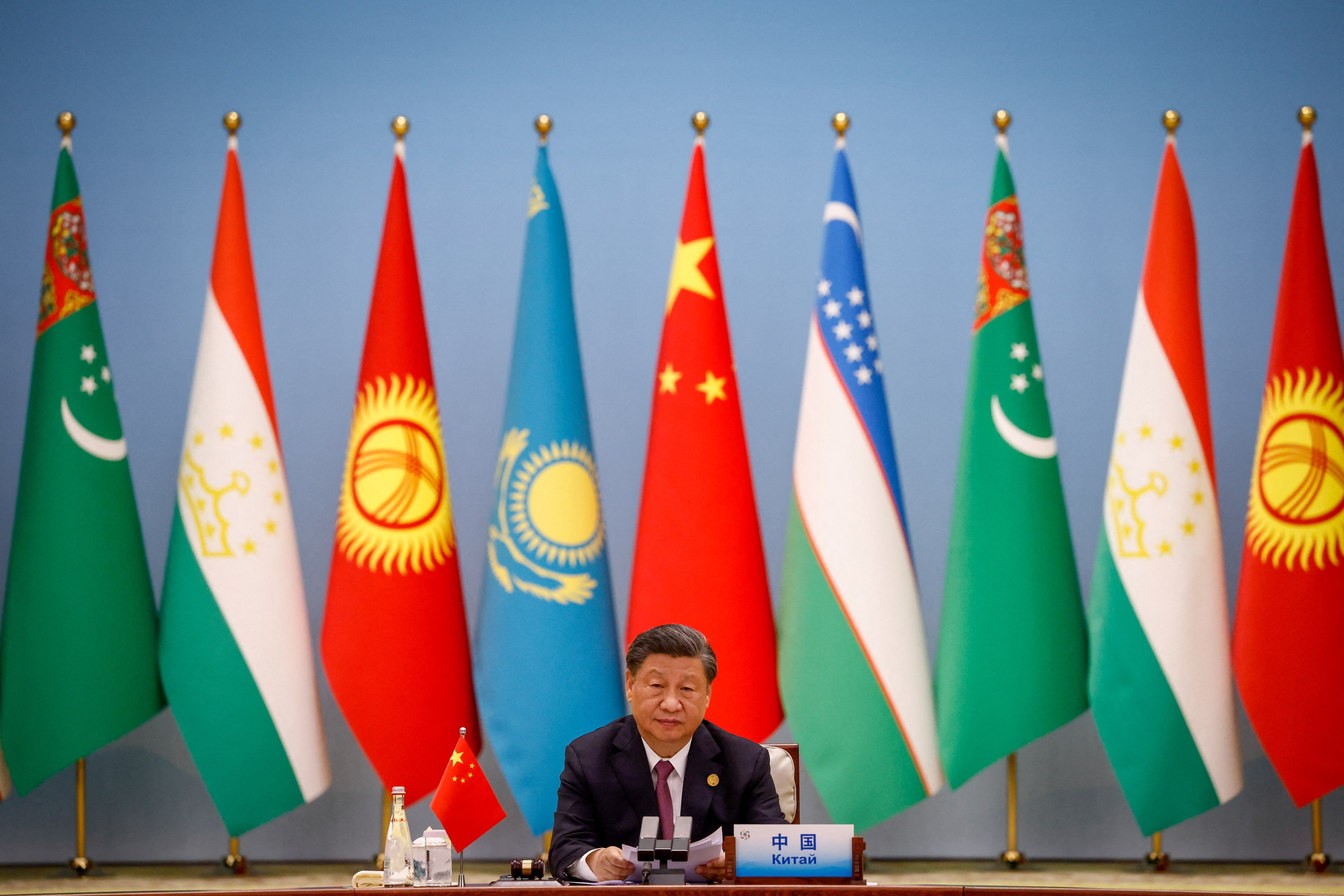
[1/2] Chinese President Xi Jinping speaks at a round table during the China-Central Asia Summit in Xi’an, Shaanxi Province, China, 19 May 2023. Mark Cristino/Pool via REUTERS
XIAN, May 19 (Reuters) – From building infrastructure networks to boosting trade – while avoiding “external interference” – Chinese President Xi Jinping unveiled an ambitious plan on Friday to help propel Central Asia to the next stage of its development.
China is ready to coordinate development strategies with the five Central Asian countries of Kazakhstan, Kyrgyzstan, Tajikistan, Turkmenistan and Uzbekistan, and to make joint efforts to promote the modernization of the six countries, he said at the China-Central Asia Summit. Northwest China.
“The world needs a stable, prosperous, harmonious and well-connected Central Asia,” Xi said.
At the same time, Xi warned that the six countries should resist “foreign interference” in the internal affairs of regional countries and efforts to incite “color revolutions,” and maintain a zero-tolerance stance against terrorism, separatism and extremism.
“China is willing to help Central Asian countries improve their law enforcement, security and defense capacity building,” Xi said.
Chinese state media portrayed the two-day summit in the historic Silk Road city of Xi’an as a triumph of China’s regional diplomacy. The leaders of Kazakhstan, Kyrgyzstan, Tajikistan, Turkmenistan and Uzbekistan pledged their support to Beijing. Cooperation.
The show of solidarity with China’s Central Asian neighbors is expected to contrast sharply with the “negative” image of Beijing presented at the weekend’s Leaders’ Summit in Hiroshima.
A high level of confidence in China’s neighbors will help Counter US accusations of coercive diplomacy by Beijing. Xi’s gathering of five leaders on Chinese soil without Russian President Vladimir Putin draws Central Asia closer to China’s sphere of influence as Moscow’s attention is locked on the war in Ukraine.
Xi said China and Central Asian countries should deepen strategic mutual trust and always provide each other with “clear and strong support” in core interests such as sovereignty, independence, national dignity and long-term development. Like many Central Asian countries, Ukraine was a disintegrated ex-Soviet state.
Trade and Investment
China will improve bilateral investment agreements with Central Asian countries and increase cross-border freight volumes with the region in an all-round way, Xi said.
Beijing will encourage Chinese-funded businesses in Central Asia to create more local jobs, build overseas warehouses in the region and launch a special train service aimed at promoting cultural tourism with Central Asia.
Two-way trade between China and Central Asia reached $70 billion last year, with Kazakhstan receiving $31 billion, as China seeks deeper economic ties in its quest for greater food and energy security.
Xi said the construction of the D line of the China-Central Asia natural gas pipeline should be accelerated.
He called for China and Central Asia to increase oil and gas trade, improve energy cooperation across industrial chains, increase cooperation in new energy and peaceful use of nuclear energy.
Furthermore, China supports the construction of the Trans-Caspian Sea International Transport Corridor, and China will strengthen the construction of transit hubs of China-Europe freight train services, Xi said.
Report from Beijing Newsroom; Editing by Jacqueline Wong
Our Standards: Thomson Reuters Trust Principles.